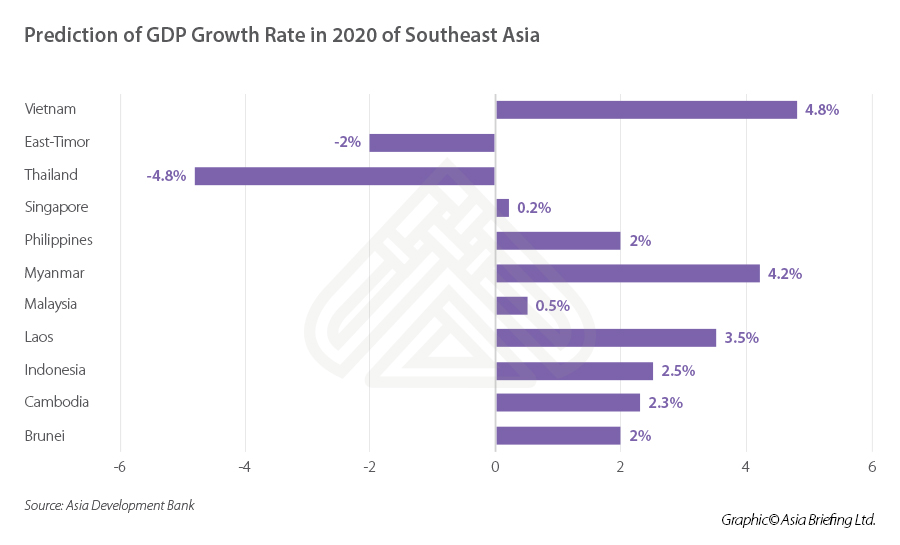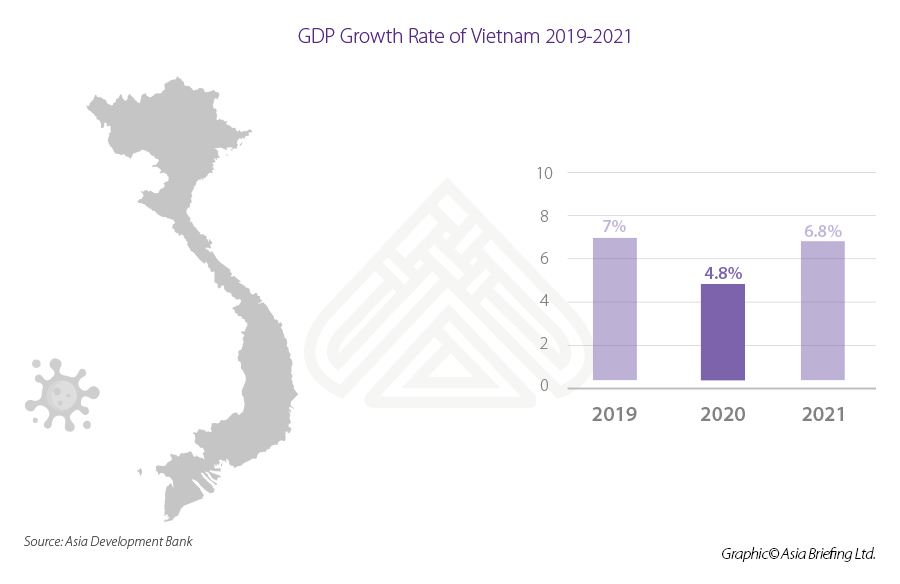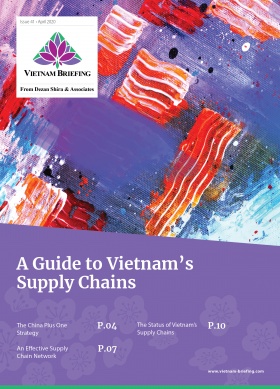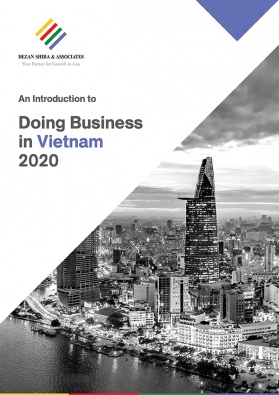Vietnam’s Economy to Grow Fastest in Southeast Asia Despite COVID-19: ADB
- Vietnam is forecast to be one of the fastest-growing economies in Southeast Asia, despite the impact of COVID-19.
- The government launched a US$10.8 billion credit support package in March to combat the crisis.
- After COVID-19, the economy is expected to rebound at a growth rate of 6.8 percent in 2021 with continued strong growth.
According to the Asian Development Bank (ADB), Vietnam’s economy has shown strong growth in 2019, as a result of high domestic demand, a strong manufacturing and processing industry, and high Foreign Direct Investment (FDI).
The second outbreak of COVID-19 in March started a new phase in the fight against the pandemic, severely affecting all of Vietnam’s major trading and investment partners. As a result, Vietnam’s GDP fell to 3.8 percent in the first quarter of 2020 compared to 6.8 percent in the same period in 2019 as per the General Statistics Office of Vietnam (GSO).
To learn more about business operations in Vietnam during the pandemic, please click here.
Regardless of the impact of the COVID-19 pandemic, Vietnam is forecast to be one of the fastest-growing economies in Southeast Asia. According to the ADB’s Asian Development Outlook 2020 report published on April 3, 2020, Vietnam’s economic growth will decline sharply to 4.8 percent in 2020 but bounce back up to 6.8 percent in 2021, provided the pandemic is contained.
We look at the forecast GDP growth rates of each country in Southeast Asia as per ADB:
Government strategy to support business activities
According to a survey by the Vietnam Chamber of Commerce and Industry (VCCI), the pandemic has had a strong impact on production and business activities. Nearly 85 percent of companies believe that the disease has tightened their consumer markets, while nearly 60 percent of companies have a lack of capital and are subject to reduced cash flow.
In the first 3 months of the year, almost 35,000 companies went bankrupt. This is the first time in decades, the number of companies closing down was higher than the number of newly registered companies.
To combat the crisis, the government launched a US$10.8 billion (about 0.4 percent of GDP) credit support package in early March, which includes policies to restructure loan terms and reduce interest rates and fees. In addition, the government has also offered two budget support packages of US$1.3 billion, which include a reduction in taxes and fees for affected companies and an extension of tax payment schedules. Currently, Vietnam still intends to increase these support packages.
The central State Bank of Vietnam (SBV) has also lowered the key interest rate from 0.5 percent to 1 percentage points. The central bank reduced maximum interest rates for deposits in the Vietnamese Dong (VNDs) denominated deposit accounts with maturities of less than six months and the maximum interest rates for short-term loans in VNDs for priority areas.
For more information on the incentives offered by the Vietnamese government to combat the effects of COVID-19, please click here.
Vietnam’s economy to bounce back after COVID-19
According to the ADB report, the basic structure of the Vietnamese economy will be retained if the epidemic is kept under control in the first half of 2020. If this scenario holds true, the economy will rebound at a growth rate of 6.8 percent in 2021 and continue to grow strongly for a long period of time.
ADB’s Country Director in Vietnam, Eric Sidgwick, said that even though economic growth is dwindling and the risks from the COVID-19 pandemic remain, Vietnam still has one of the fastest economic growth rates in Southeast Asia.
The drivers for economic growth in Vietnam are the emerging middle class, and the rising number of household and small business activities.
Therefore, the domestic business environment is expected to improve rapidly. Government expenditure, which was implemented as a response to the spread of the epidemic, has risen sharply in the first three months of 2020 and will remain so. It is believed that the large number of bilateral and multilateral trade agreements in which Vietnam participates will help to expand market access and also boost the national economy.
About Us
Vietnam Briefing is produced by Dezan Shira & Associates. The firm assists foreign investors throughout Asia from offices across the world, including in Hanoi and Ho Chi Minh City. Readers may write to vietnam@dezshira.com for more support on doing business in Vietnam.
- Previous Article Trotz COVID-19 hat Vietnams Wirtschaft noch die schnellste Wachstumsrate in Südostasien
- Next Article How Vietnam Contained COVID-19 and Why its Economy Will Rebound









